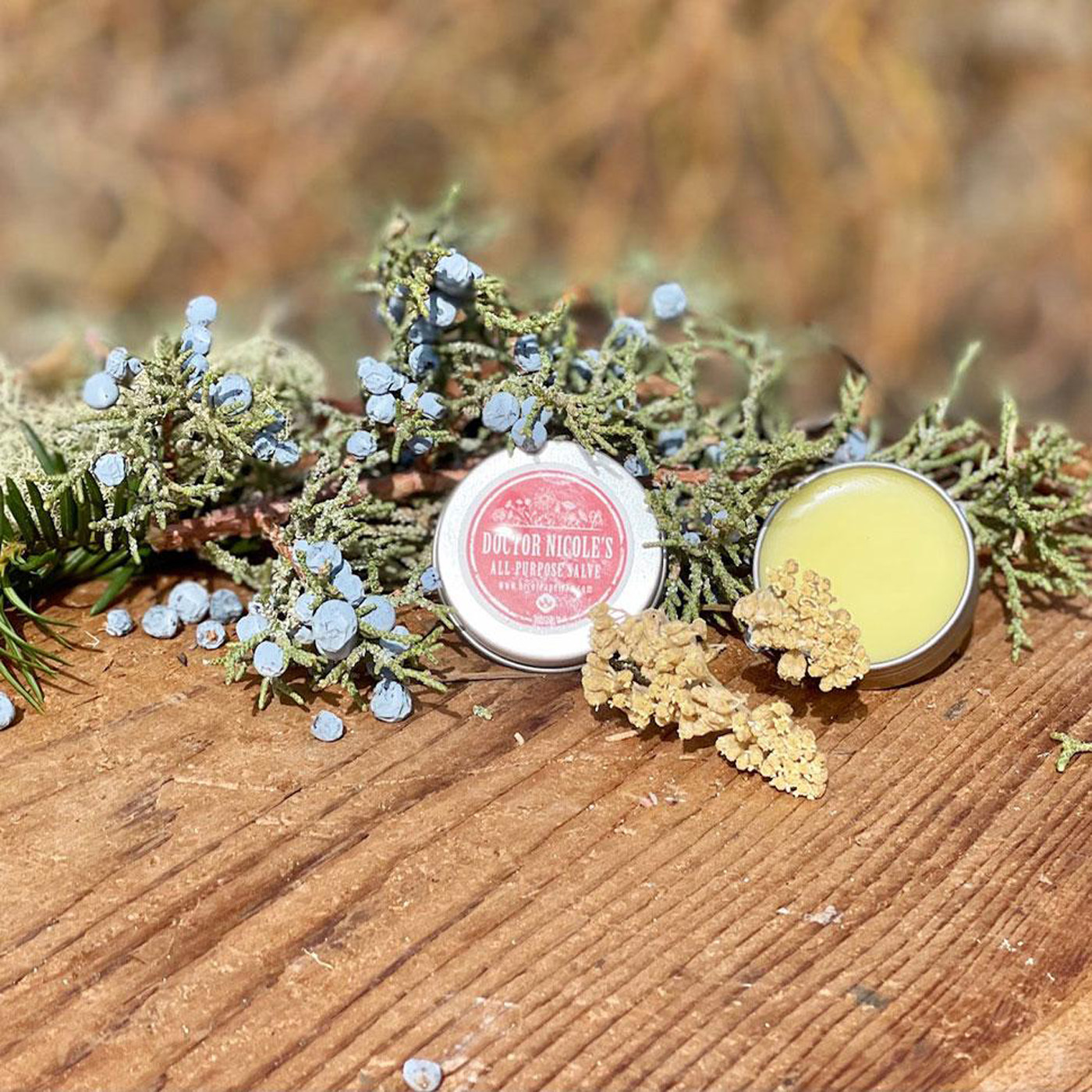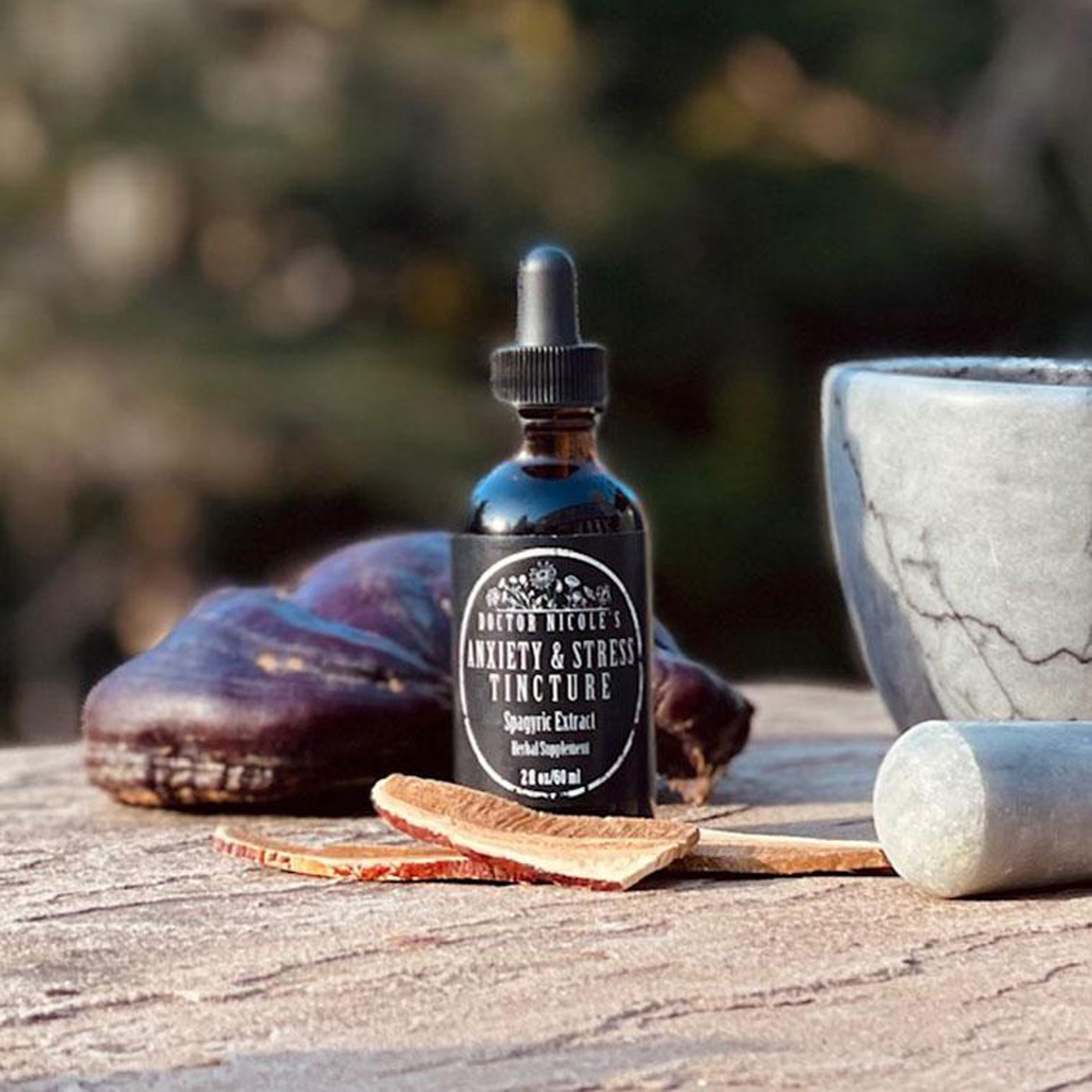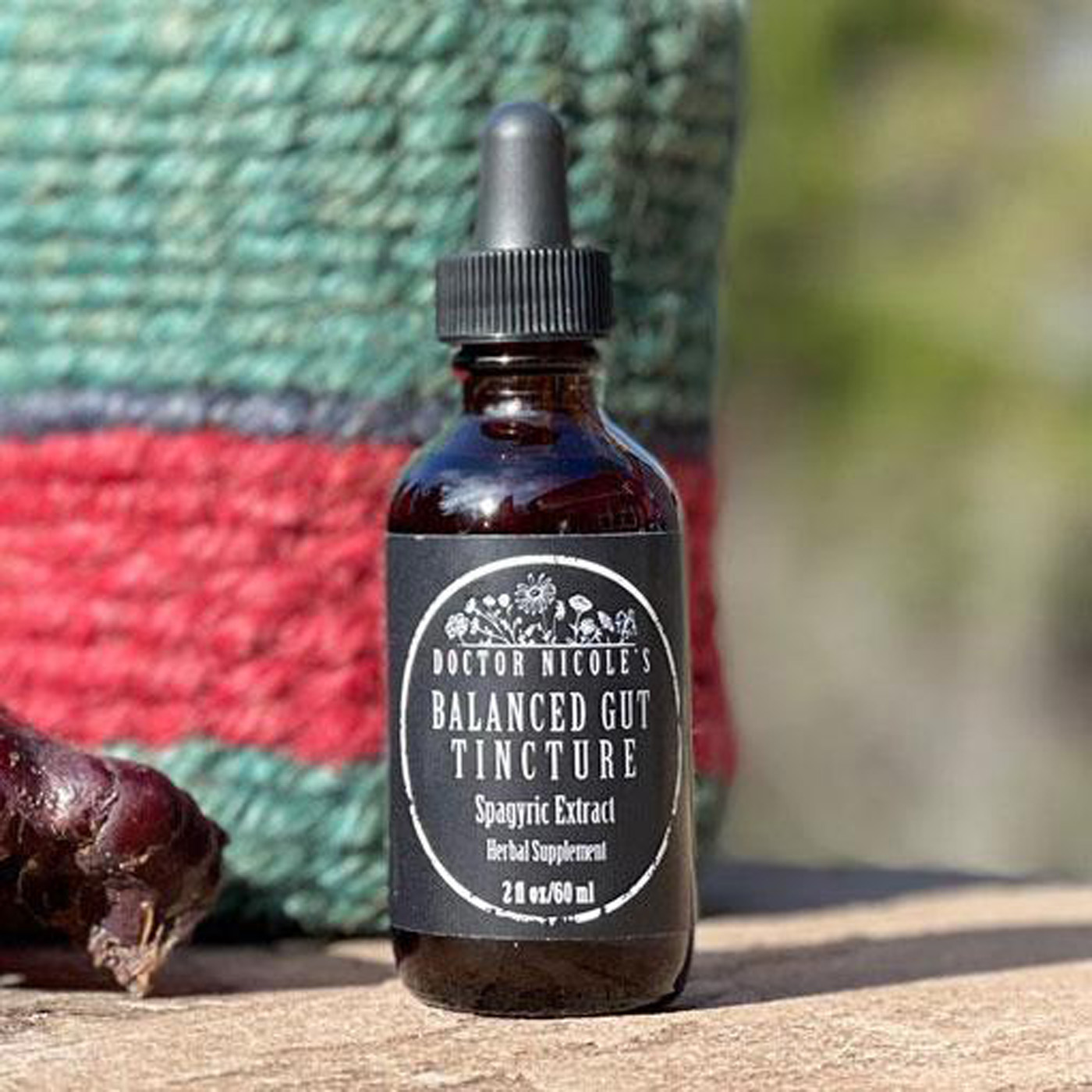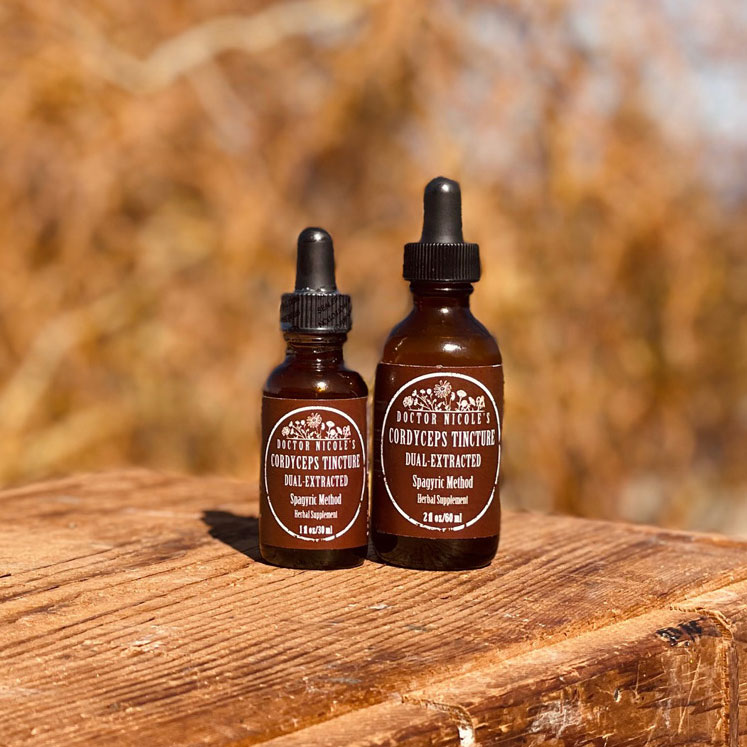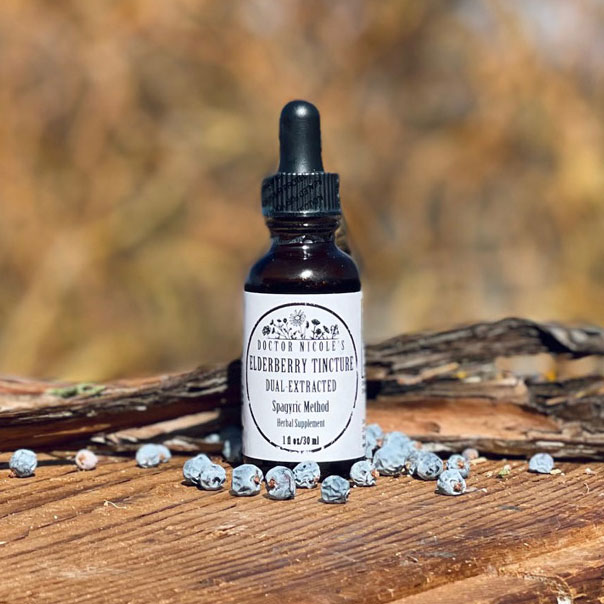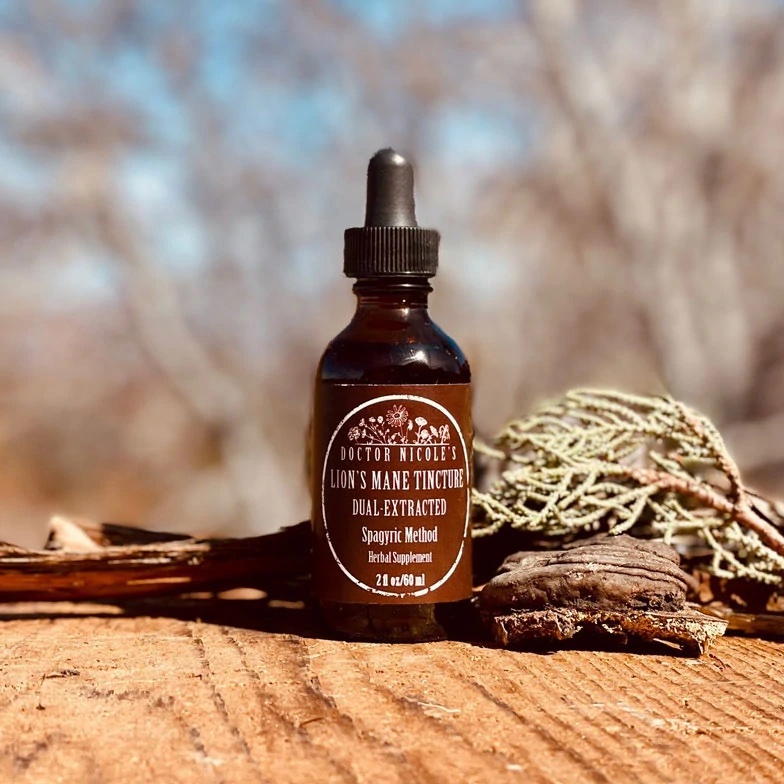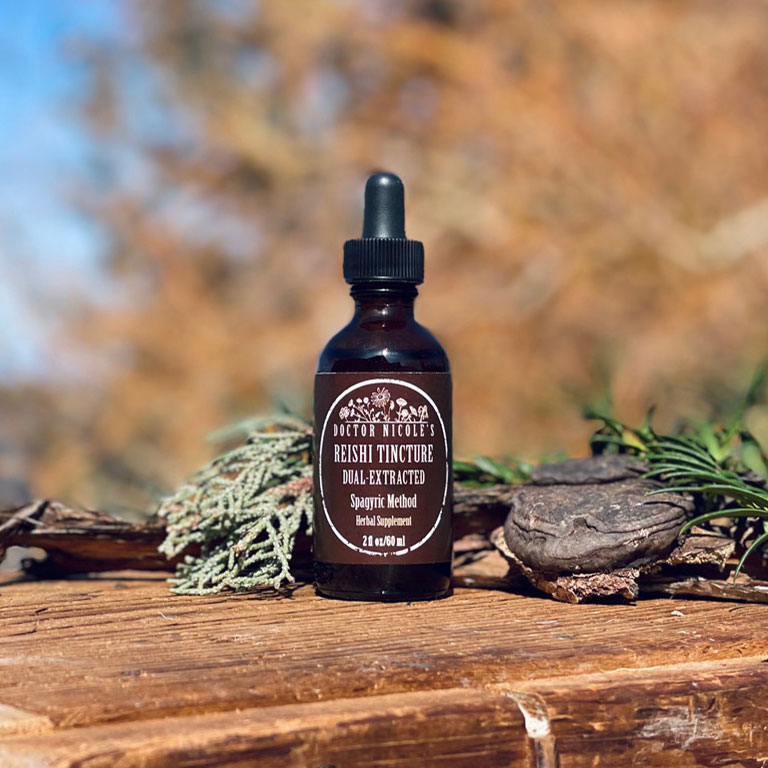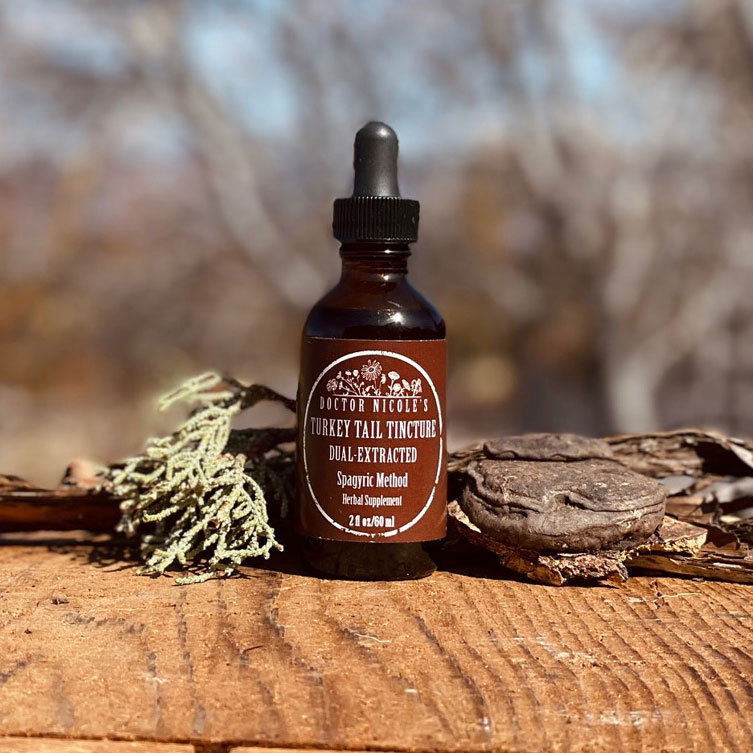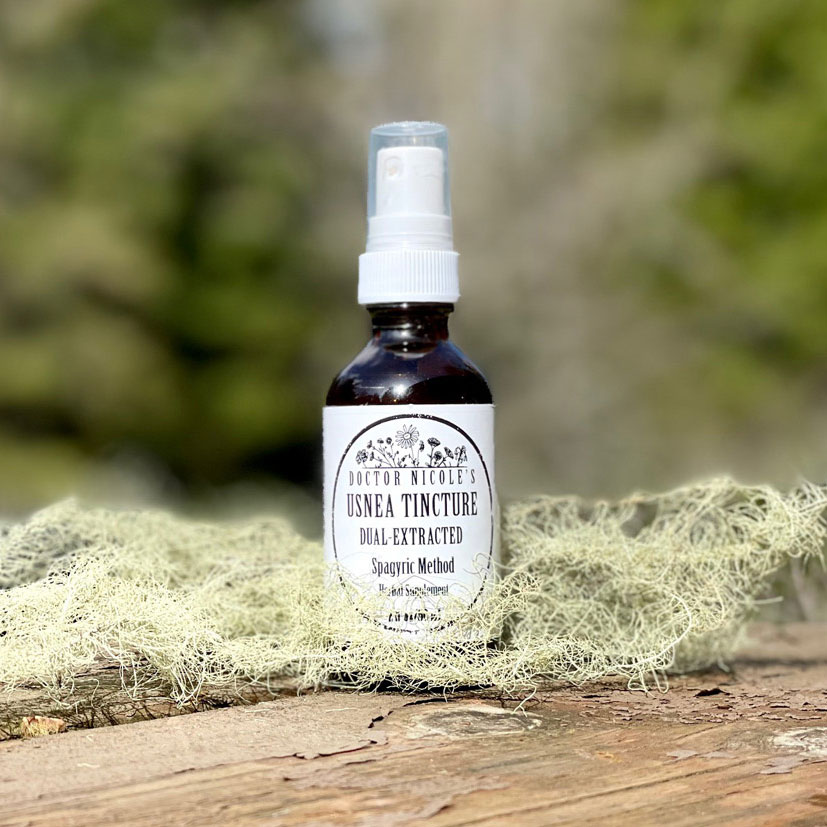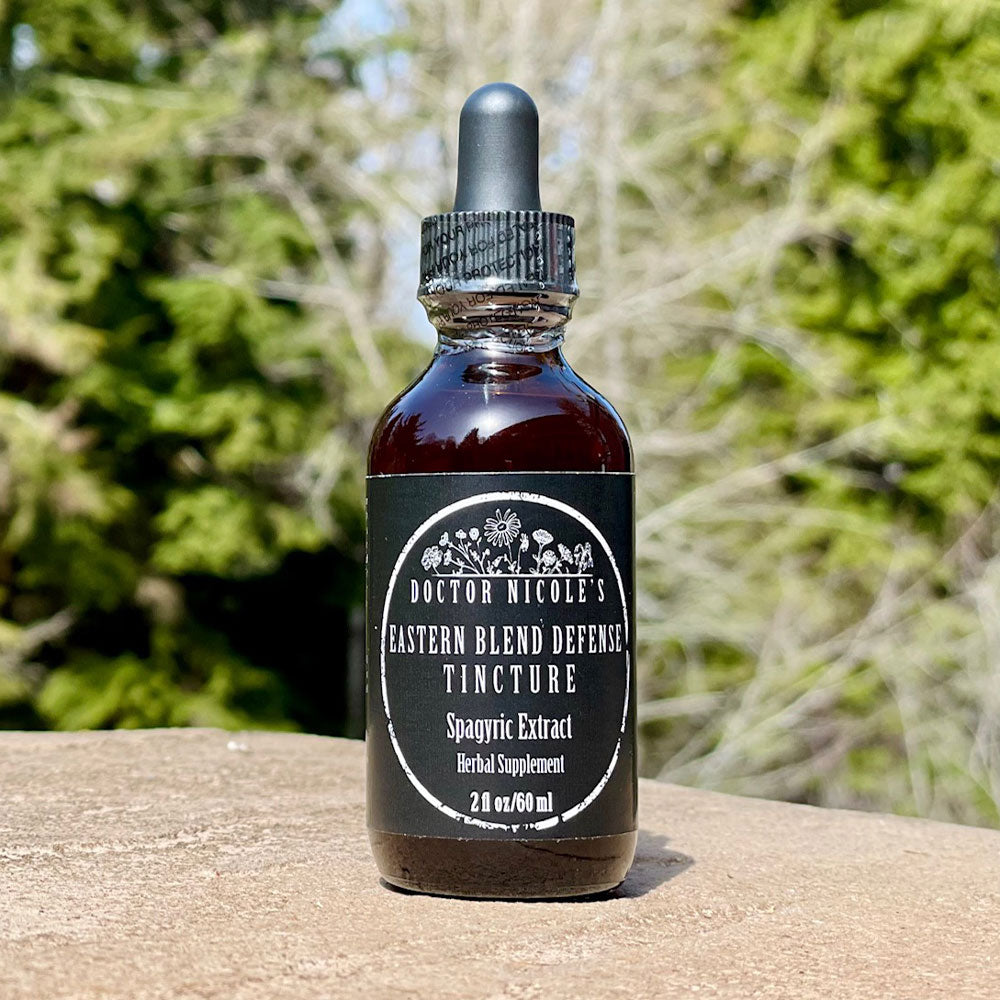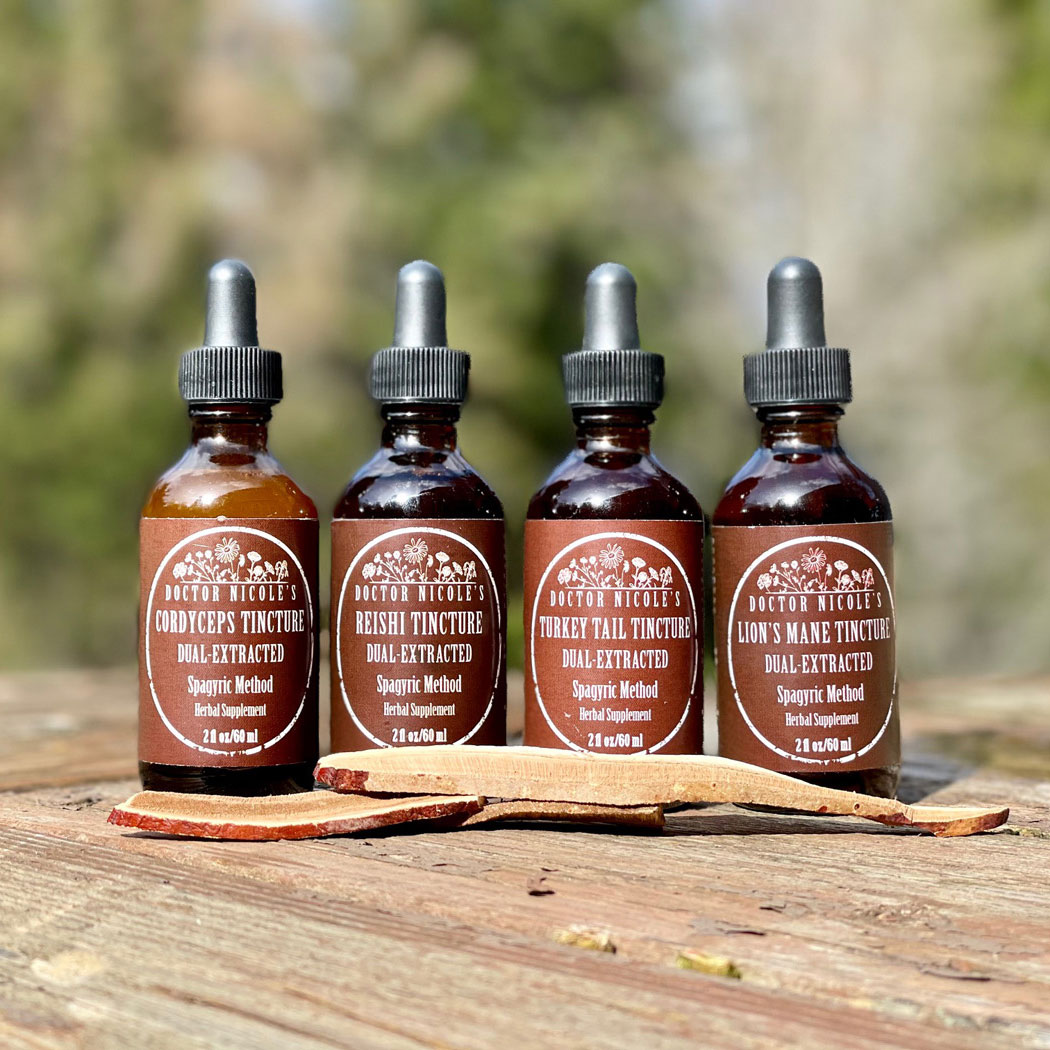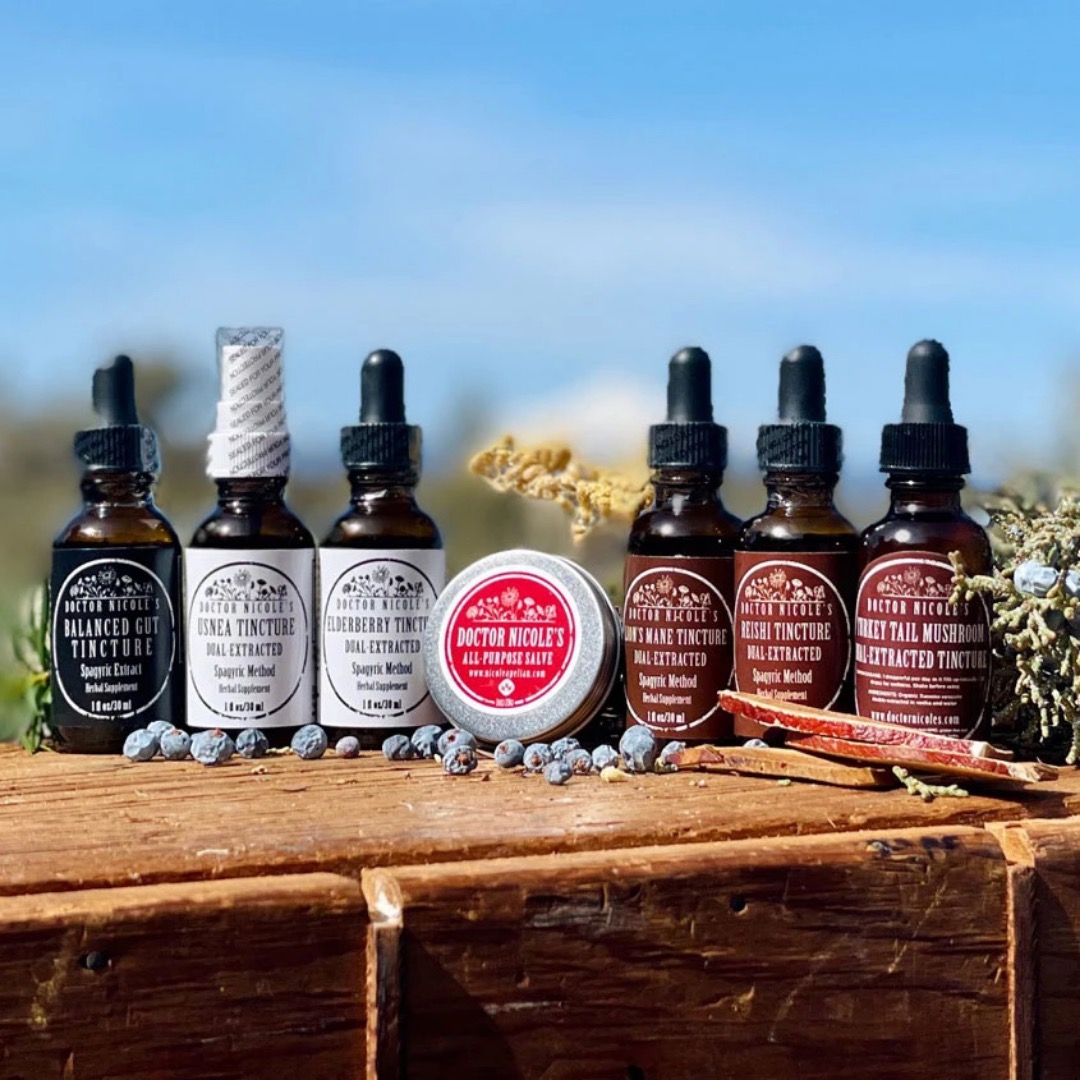This is what works for me and my lifestyle.
MS is tough to deal with and feeling better can be elusive for many people. It’s a tough diagnosis, but I have been able to live well with it – I used to not be able to walk. I hope that sharing my personal Multiple Sclerosis management protocol is helpful for you.
If you or someone you know has an autoimmune condition, please read and share. I believe that much of what I do for MS helps other autoimmune conditions as well.
Note: For those looking for all of the herbs I use daily, everything is in my Warrior Bundle, plus my Cordyceps Tincture. My daily vitamin supplements, herbs for illness prevention, diet, and lifestyle tips are below. If you’re deciding where to begin, many start with my Medicinal Mushroom FOURtress and dietary changes.
Navigate this post:
How I Manage Multiple Sclerosis
Diet: The first step toward MS health is to lower inflammation and elevated blood sugar levels. Diet is key. An IGG Food Sensitivity test can be helpful – this can be done online or via a naturopath. I eat a gluten-free, low-sugar diet with very few to no processed foods. For me, an anti-inflammatory diet is ideal. The Wahls Protocol is an excellent plan to follow.
Medicinal Mushrooms: Chronic inflammation is correlated with the onset of many autoimmune disorders. There are natural remedies for autoimmune diseases that help balance an overstimulated immune system. Adaptogenic, anti-inflammatory, and immunomodulatory herbs are known to be especially good for autoimmune issues.
Many medicinal mushrooms have immunomodulatory and anti-inflammatory properties. I take dual-extracted Lion’s Mane, Reishi, Turkey Tail, and Cordyceps Mushroom tinctures daily. These mushrooms have the added benefit of being antiviral, protecting you from illness. Each is found in my Mushroom FOURtess.
Note that you need a dual-extracted tincture to access all of the medicinal compounds; a tea or coffee supplement is not enough. Suggested dosage: 2 dropperfuls of each individual tincture once daily. I take all four of these mushroom tinctures together every morning.
All herbs are available in my Apothecary; additional links at the end of this post.
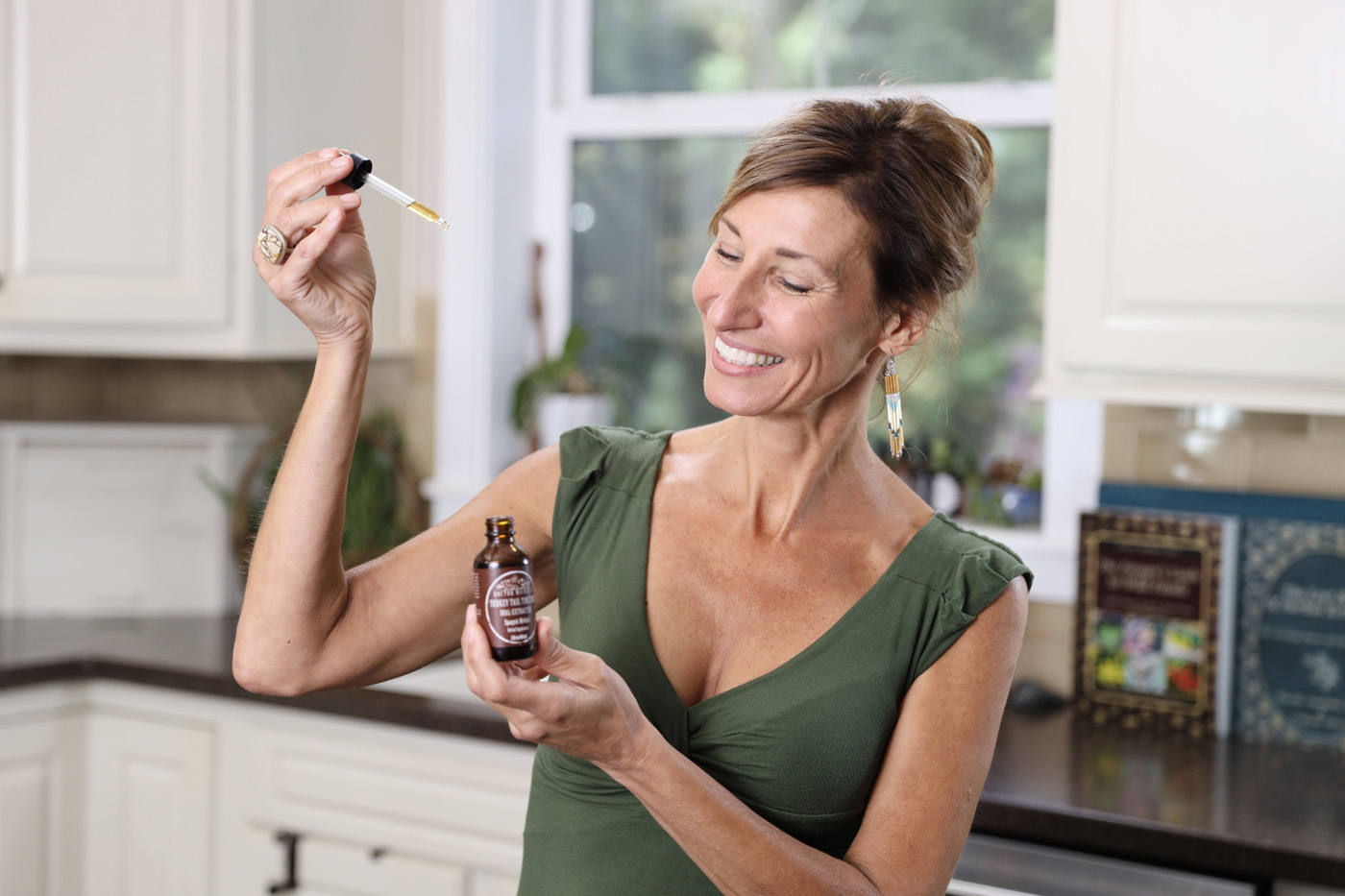
Medicinal Mushrooms: More Detail
Lion’s Mane Mushroom Tincture
- Helps with inflammation, including gut inflammation
- Enhances cognitive function
- Shown to help reduce symptoms of Alzheimer’s, Dementia, & Parkinson’s.6, 7, 8
- Helps repair damaged nerve cells in the spinal cord and brain by encouraging Nerve Growth Factor (NGF)
- Helps stimulate the growth of brain cells
- Helps with sleep, anxiety, and depression
- Enhances energy by helping with blood oxygen levels, muscle fatigue, and lactic acid accumulation
- Known to be helpful for autoimmune conditions
Reishi Mushroom Tincture
- Helps suppress certain inflammatory compounds and helps inhibit histamine release.6
- Helps strengthen the body against the negative effects of stress, including hormonal imbalances, high cortisol, fatigue, brain fog, and low energy
- Helps with autoimmune diseases and leaky gut issues through its anti-inflammatory action and immune system modulation.
- High in beneficial beta-glucans, glycoproteins, and triterpenes to support gut and metabolic health.
- Promotes quality sleep, helps alleviate adrenal fatigue, and encourages healthy immune function.
- Alcohol-extracted reishi helps with blood sugar management. This is important, as it has been shown that it’s possible to avoid the onset of seasonal allergies by keeping blood glucose levels balanced.
- Helps lower liver enzymes and enhances liver function.
Turkey Tail Mushroom Tincture
- Enhances prebiotic action and helps with leaky gut and candida overgrowth
- Helps calm internal and external inflammation
- Helps reduce symptoms of chronic fatigue syndrome
- Promotes management of blood sugar, blood pressure, and LDL cholesterol
- May help reduce the risk of cancer
- Helps with bacterial and viral infections, including HIV, herpes, shingles, HPV, colds, and influenza.
- A known immune modulator, turkey tail is thought to be an effective medicinal herb for autoimmune conditions.
Cordyceps Mushroom Tincture
- Demonstrates great potential for acute lung injury induced by influenza
- Enhances athletic performance and supports cardiovascular and liver health
- Helps with the management of blood sugar levels
- Helps with fatigue
- Support for chronic inflammation
- Promotes neuroprotection
- Enhances memory, learning, and oxidative damage to cells.4,5
- Cordycepin from C. militaris is thought to help inhibit viral entry and viral replication into the host body’s cells.
- Known to be an antimicrobial
- A study published in Phytotherapy Research found that cordyceps helps improve brain function in animal models.
- This study found Cordyceps helps improve insulin sensitivity while also lowering bad LDL cholesterol, which helps to prevent plaque buildup in the arteries, thereby helping reduce the risk of heart attack and stroke.
- Research suggests cordyceps helps inhibit the growth of cancer cells, including those of the lung, colon, and liver.1, 2, 3
Supplements
- Get your Vitamin D level checked, as low Vitamin D is associated with MS. Vitamin D helps to regulate inflammatory markers and immune cells, so make sure you have sufficient levels and supplement if needed. Research shows that Vitamin D helps regulate the release of nerve growth factor (NGF), an essential molecule for the neuronal survival of hippocampal and cortical neurons.
- I take Omega 3s as Omega 3 fatty acids work to reduce oxidative stress and inflammation. Studies show it helps reduce bowel inflammation, helps with myelin repair, decreases disease activity, reduces pain, and lowers the use of anti-inflammatory drugs.
- I take Tru Niagen (nicotinamide riboside) daily (300mg)
- I take a good daily Probiotic
- Check your Vitamin B12 levels. Levels of B12 tend to be low in MS patients. It’s a cofactor in myelin formation and plays a role in regulating the immune system.
- Coenzyme Q10 – Studies suggest that coenzyme Q10 might be useful for neurodegenerative diseases. CoQ10 helps suppress inflammation, improves fatigue and depression, and has beneficial effects on inflammatory cytokines and oxidative stress in autoimmune patients. I take 400 mg/day.
- I keep inflammation down with my Four Mushroom Tinctures and this absorbable form of Turmeric with Curcumin, Black Pepper, and Ginger.
The only Western medicine I use to help manage Multiple Sclerosis is low-dose Naltrexone for fatigue. For me, it has had no negative side effects, and it helps.
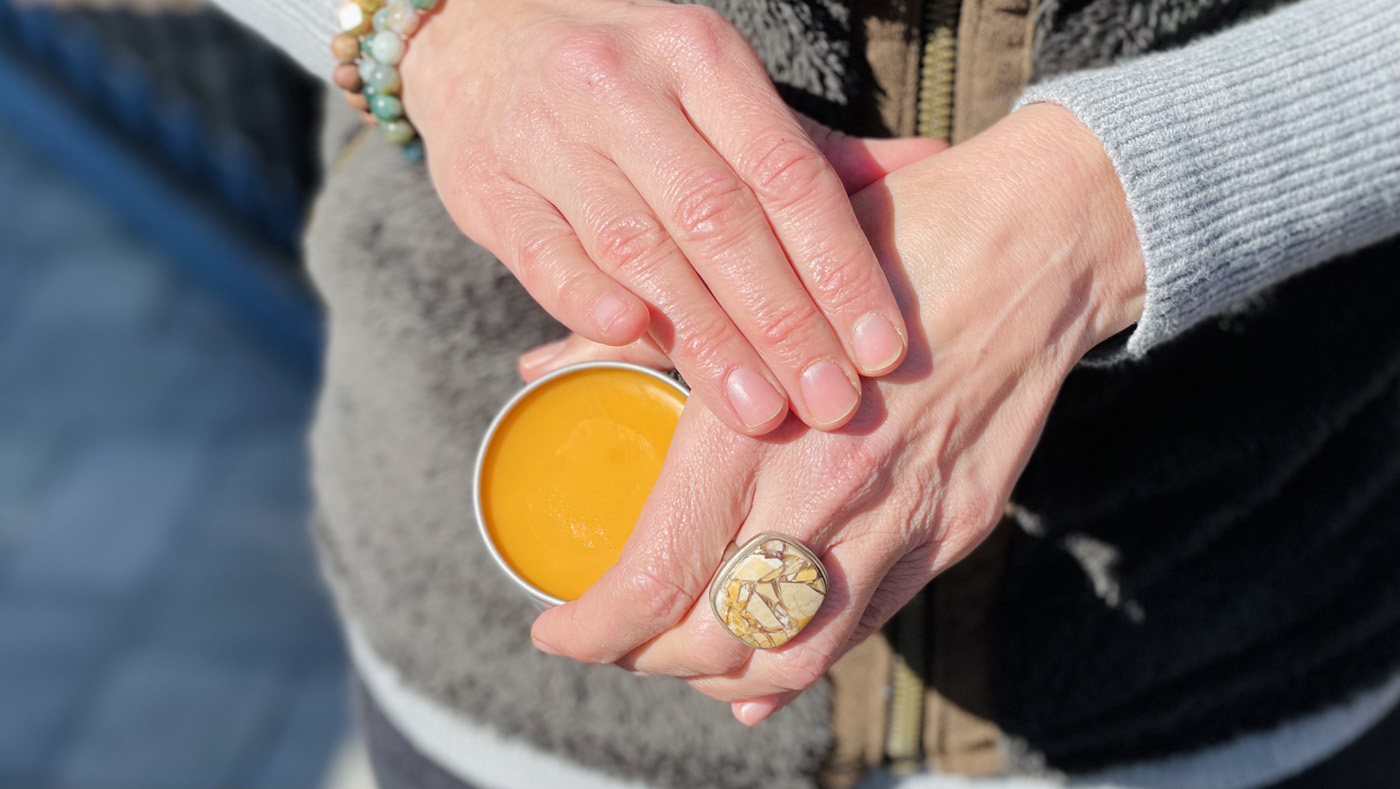
Preventing Contagious Illness That Can Lead to a Flare
For preventing general illness (which causes the dreaded immune response that can cause MS to flare up), I rely on my trinity of Elderberry Tincture, Usnea Spray, and All-Purpose (First Aid) Salve, available individually or together in my Travel Pack – also a part of my Warrior Bundle.
Elderberry Dual-extracted Tincture and Ursolic Acid
Beyond shortening the duration of colds and the flu, elderberry is helpful for inflammation, chronic fatigue, allergies, nerve pain, heart pain, headaches, dental pain, sciatica, and more. Elderberry contains the antioxidant flavonols quercetin, kaempferol, and isorhamnetin. The berries are rich in anthocyanins, which provide strong antioxidant and anti-inflammatory benefits. A systematic review of data found that elderberry is a safe option for treating viral respiratory illness with no evidence that it over-stimulates the immune system or creates a cytokine storm.
The alcoholic extraction of elderberry contains the triterpenoid ursolic acid (UA), which has been shown to halt damage and spurs neuronal repair in multiple sclerosis, prevent and repair neurons in animal models of MS, reduce further damage to neurons, help rebuild the protective sheaths covering neurons, shows significant potential as an oral anti-inflammatory for MS, and has significant potential as a neural repair agent for MS . Ursolic acid is also found in apple peels, aronia berries, many kitchen herbs (oregano, thyme, rosemary, sage, basil, tulsi), cranberries, bilberries, and hawthorn.
Usnea Dual Extracted Tincture
I pair Usnea with Elderberry to stay healthy during the cold and flu season and when I’m traveling or around crowds. Usnea has powerful antibiotic, antifungal, antimicrobial, and antiviral properties. It can be used as an anti-bacterial, anti-microbial, anti-viral, anti-fungal, for MRSA, respiratory issues, staph infection, strep throat, toenail fungus (topical spray), urinary disorders, and more. I use 1-3 sprays in my throat per day for prevention and more if ill. I also coat the inside of my nose with my All-Purpose Salve for illness prevention.
Eastern Blend Tincture
This is a blend of Chinese skullcap, Japanese honeysuckle, Japanese knotweed, and cordyceps. These research-backed herbs address a wide range of health concerns, including Lyme disease, viral and bacterial infections, diabetes, cancer, anxiety, insomnia, and cardiovascular issues. This blend has powerful anti-inflammatory action and helps to boost/modulate the immune system. I use it for viral prevention when traveling for the following reasons:
- The baicalin and wogonin content in Chinese skullcap (Scutellaria baicalensis) is anti-inflammatory and has been shown to exhibit strong antiviral activity for severe respiratory illness, the common cold, and influenza. It protects against oxidative stress and has both neuroprotective and cognitive enhancement effects due to its baicalin content. Japanese honeysuckle is antiviral, antibacterial, anti-inflammatory, modulates the immune system and significantly increases killer (NK) cells. Japanese knotweed is antiviral, antibacterial, & antifungal. It contains high concentrations of trans-resveratrol, has strong antioxidant activity, inhibits viral replication, and reduces neuroinflammation in neurodegenerative diseases.
Balanced Gut Blend
There is a direct link between increased intestinal permeability, inflammation, and multiple sclerosis. Since MS is characterized by inflammatory T-cells attacking the protective myelin coating of brain and spinal cord nerve cells, the cascade of intestinal inflammation is significant for those with MS. An anti-inflammatory diet helps with Leaky Gut, as will fermented foods, probiotics, and herbs such as the ones in my Balanced Gut Blend Tincture. If I feel like a flare is coming I double my dosage of my Mushroom FOURtress and add in my Anxiety & Stress Tincture. I also take my Anxiety & Stress Tincture up to 3x/day when I am feeling “off” (if you’re reading this I’m sure you get what I mean by that). Other important things I incorporate into MS management:
- I give gratitude daily and I try to stay in the present moment the best I can. This is very important as the mind-body connection is HUGE.
- I spend time in nature daily – nature connection is extremely valuable for health.
- I spend time away from media and carry this personal anti-EMF device as well as have this one to protect me and my family at home. For all products, visit Blushield. For 10% off on any product use the coupon code doctornicole.
Please note that I am a Ph.D. not an M.D. For medical advice or if you have any questions, please contact a naturopathic doctor in your area.
Nicole Apelian
P.S. You asked and I answered! Our Travel Pack, Mushroom Trio & Balanced Gut Blend are now packaged together in our convenient Warrior Bundle. You can read more about all of my herbal tinctures and healing salves, along with information about their uses here.
Want a more detailed MS or Autoimmune Protocol with a chart of what to do and take daily? My book, The Holistic Guide to Wellness is for you. It has 45 science-based holistic protocols, including MS and many other autoimmune disorders.
Interested in making your own herbal remedies? My book, The Lost Book of Herbal Remedies: The Healing Power of Plant Medicine, will help you on your herbal journey. To purchase in Europe please visit this link.
Nicole’s Apothecary Products in this Post
Disclaimer
Please note that the contents of this website are for informational purposes only, do not constitute medical advice, and are not intended to be a substitute for diagnosis or treatment. Always seek the advice of a qualified health provider with any questions you may have regarding a medical condition. Never disregard professional medical advice or delay in seeking it because of something you have read on this website. In the event of a medical emergency, call a doctor or 911 immediately. Reliance on any information provided by this website is solely at your own risk.
Medicinal Mushroom References
- Bhardwaj, N., Katyal, P., & Sharma, A. K. (2014). Suppression of inflammatory and allergic responses by pharmacologically potent fungus Ganoderma lucidum. Recent patents on inflammation & allergy drug discovery, 8(2), 104–117. https://doi.org/10.2174/1872213×08666140619110657 https://pubmed.ncbi.nlm.nih.gov/24948193/
- Brandalise, Federico et al. “Dietary Supplementation of Hericium erinaceus Increases Mossy Fiber-CA3 Hippocampal Neurotransmission and Recognition Memory in Wild-Type Mice.” Evidence-based complementary and alternative medicine : eCAM vol. 2017 (2017): 3864340. doi:10.1155/2017/3864340. https://www.ncbi.nlm.nih.gov/pmc/articles/PMC5237458/)
- Deshmukh, Sunil & Sridhar, K. & MK, Gupta. (2021). Hericium erinaceus -A Rich Source of Diverse Bioactive Metabolites. Fungal Biotec. 1. 10-38. 10.5943/FunBiotec/1/2/2. https://www.researchgate.net/publication/355143838_Hericium_erinaceus_-A_Rich_Source_of_Diverse_Bioactive_Metabolites
- Guo, P., Kai, Q., Gao, J., Lian, Z. Q., Wu, C. M., Wu, C. A., & Zhu, H. B. (2010). Cordycepin prevents hyperlipidemia in hamsters fed a high-fat diet via activation of AMP-activated protein kinase. Journal of pharmacological sciences, 113(4), 395–403. https://doi.org/10.1254/jphs.10041fp https://pubmed.ncbi.nlm.nih.gov/20724804/
- Huang, Shichao et al. “Polysaccharides from Ganoderma lucidum Promote Cognitive Function and Neural Progenitor Proliferation in Mouse Model of Alzheimer’s Disease.” Stem cell reports vol. 8,1 (2017): 84-94. doi:10.1016/j.stemcr.2016.12.007. https://pubmed.ncbi.nlm.nih.gov/28076758/)
- Ji, D. B., Ye, J., Li, C. L., Wang, Y. H., Zhao, J., & Cai, S. Q. (2009). Antiaging effect of Cordyceps sinensis extract. Phytotherapy research : PTR, 23(1), 116–122. https://doi.org/10.1002/ptr.2576 https://pubmed.ncbi.nlm.nih.gov/18803231/
- Kuo, Hsing-Chun et al. “Hericium erinaceus mycelium and its isolated erinacine A protection from MPTP-induced neurotoxicity through the ER stress, triggering an apoptosis cascade.” Journal of translational medicine vol. 14 78. 18 Mar. 2016.
- Lai, P. L., Naidu, M., Sabaratnam, V., Wong, K. H., David, R. P., Kuppusamy, U. R., Abdullah, N., & Malek, S. N. (2013). Neurotrophic properties of the Lion’s mane medicinal mushroom, Hericium erinaceus (Higher Basidiomycetes) from Malaysia. International journal of medicinal mushrooms, 15(6), 539–554. https://doi.org/10.1615/intjmedmushr.v15.i6.30 https://pubmed.ncbi.nlm.nih.gov/24266378/
- Li, X. T., Li, H. C., Li, C. B., Dou, D. Q., & Gao, M. B. (2010). Protective effects on mitochondria and anti-aging activity of polysaccharides from cultivated fruiting bodies of Cordyceps militaris. The American journal of Chinese medicine, 38(6), 1093–1106. https://doi.org/10.1142/S0192415X10008494, https://pubmed.ncbi.nlm.nih.gov/21061463/
- Mori, K., Obara, Y., Moriya, T., Inatomi, S., & Nakahata, N. (2011). Effects of Hericium erinaceus on amyloid β(25-35) peptide-induced learning and memory deficits in mice. Biomedical research (Tokyo, Japan), 32(1), 67–72. https://doi.org/10.2220/biomedres.32.67 https://pubmed.ncbi.nlm.nih.gov/21383512/
- Mori, Koichiro et al. “Improving effects of the mushroom Yamabushitake (Hericium erinaceus) on mild cognitive impairment: a double-blind placebo-controlled clinical trial.” Phytotherapy research : PTR vol. 23,3 (2009): 367-72. doi:10.1002/ptr.2634. https://pubmed.ncbi.nlm.nih.gov/18844328/
- Mori, Koichiro et al. “Inhibitory effect of hericenone B from Hericium erinaceus on collagen-induced platelet aggregation.” Phytomedicine : international journal of phytotherapy and phytopharmacology vol. 17,14 (2010): 1082-5. doi:10.1016/j.phymed.2010.05.004. https://pubmed.ncbi.nlm.nih.gov/20637576/
- Nouri, Mehrnaz et al. “Intestinal barrier dysfunction develops at the onset of experimental autoimmune encephalomyelitis, and can be induced by adoptive transfer of auto-reactive T cells.” PloS one vol. 9,9 e106335. 3 Sep. 2014, doi:10.1371/journal.pone.0106335. https://pubmed.ncbi.nlm.nih.gov/25184418/Zampieron, Eugene & Kamhi, Ellen. (2012). Natural Support for Autoimmune and Inflammatory Disease. Journal of Restorative Medicine. 1. 38-47. 10.14200/jrm.2012.1.1003.https://journal.restorativemedicine.org/index.php/journal/article/view/9/15
Elderberry, Ursolic Acid, and Eastern Blend References
- He, J., & Giusti, M. M. (2010). Anthocyanins: natural colorants with health-promoting properties. Annual review of food science and technology, 1, 163–187. https://doi.org/10.1146/annurev.food.080708.100754 https://pubmed.ncbi.nlm.nih.gov/22129334/
- Gleńsk, M., Gliński, J. A., Włodarczyk, M., & Stefanowicz, P. (2014). Determination of ursolic and oleanolic acid in Sambuci fructus. Chemistry & biodiversity, 11(12), 1939–1944. https://doi.org/10.1002/cbdv.201400118 https://pubmed.ncbi.nlm.nih.gov/25491337/
https://neurosciencenews.com/ursolic-acid-multiple-sclerosis-16089/ - https://www.ema.europa.eu/en/documents/herbal-report/final-assessment-report-sambucus-nigra-l-fructus_en.pdf
- Kronbichler, A., Effenberger, M., Eisenhut, M., Lee, K. H., & Shin, J. I. (2020). Seven recommendations to rescue the patients and reduce the mortality from COVID-19 infection: An immunological point of view. Autoimmunity reviews, 19(7), 102570. https://doi.org/10.1016/j.autrev.2020.102570 https://www.ncbi.nlm.nih.gov/pmc/articles/PMC7252097/
- Tiralongo, E., Wee, S. S., & Lea, R. A. (2016). Elderberry Supplementation Reduces Cold Duration and Symptoms in Air-Travellers: A Randomized, Double-Blind Placebo-Controlled Clinical Trial. Nutrients, 8(4), 182. https://doi.org/10.3390/nu8040182 https://www.ncbi.nlm.nih.gov/pmc/articles/PMC4848651/
- Wieland, L. S., Piechotta, V., Feinberg, T., Ludeman, E., Hutton, B., Kanji, S., Seely, D., & Garritty, C. (2021). Elderberry for prevention and treatment of viral respiratory illnesses: a systematic review. BMC complementary medicine and therapies, 21(1), 112. https://doi.org/10.1186/s12906-021-03283-5 https://www.ncbi.nlm.nih.gov/pmc/articles/PMC8026097/
- Zakay-Rones, Z., Thom, E., Wollan, T., & Wadstein, J. (2004). Randomized study of the efficacy and safety of oral elderberry extract in the treatment of influenza A and B virus infections. The Journal of international medical research, 32(2), 132–140. https://doi.org/10.1177/147323000403200205 https://pubmed.ncbi.nlm.nih.gov/15080016/
- Zhang, Y., Li, X., Ciric, B., Curtis, M. T., Chen, W. J., Rostami, A., & Zhang, G. X. (2020). A dual effect of ursolic acid to the treatment of multiple sclerosis through both immunomodulation and direct remyelination. Proceedings of the National Academy of Sciences of the United States of America, 117(16), 9082–9093. https://doi.org/10.1073/pnas.2000208117 https://pubmed.ncbi.nlm.nih.gov/32253301/


